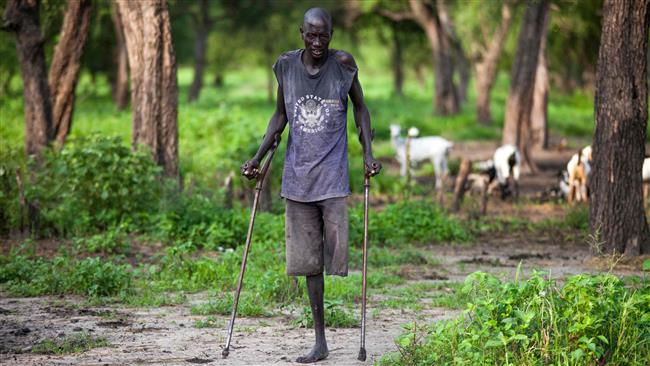Civil war cancels S Sudan’s independence celebration


For the second year in a row, the world’s youngest nation will not have any official celebrations to mark the anniversary of its birth because of the widespread suffering caused by its ongoing civil war.
“We did not feel it was appropriate to spend whatever little funds we may have to celebrate, when our people are hugely affected by the economic crisis,” said South Sudan President Salva Kiir in an address to the nation on Sunday. “It’s difficult for many people to afford even one meal per day.”
Six years after South Sudan gained independence, the country is ravaged by fighting, severe hunger, mass displacement and accusations of war crimes by government and opposition forces.
For the country’s 11 million people, what began with optimism has turned into a day of mourning.
During four years of fighting, South Sudan’s situation has gravely deteriorated.
Roughly 4 million people have been forced to flee their houses, more than half of them children, said the Norwegian Refugee Council. Six million people — half the country’s population — are in need of food aid and almost 2 million South Sudanese are living as refugees in neighboring countries.

“South Sudan’s independence day is overshadowed by conflict and an unprecedented food crisis,” said country director for the Norwegian Refugee Council, Rehana Zawar.
In his address to the nation, Kiir said the only solution is peace and he called on all armed groups to renounce violence and respect the cease-fire.
Earlier this year, the government declared a unilateral cease-fire, however reports of fighting by government forces have continued.
Four days ago the opposition reported government attacks on rebel-held territory. “They’re randomly shelling and killing people along the way,” said opposition spokesman, William Gatjiath Deng.
Kiir also urged the international community to support the national dialogue, announcing that the government has earmarked about $200 million for this “crucial national project.”
However experts say what South Sudan needs now are less words and more action. “The national dialogue is a political game,” said Jacob Chol, professor of comparative politics at the University of Juba. “It’s not a participatory process, the president just wanted to bring everyone together to feel in control. I won’t be surprised if nothing changes.”
(Source: AP)







